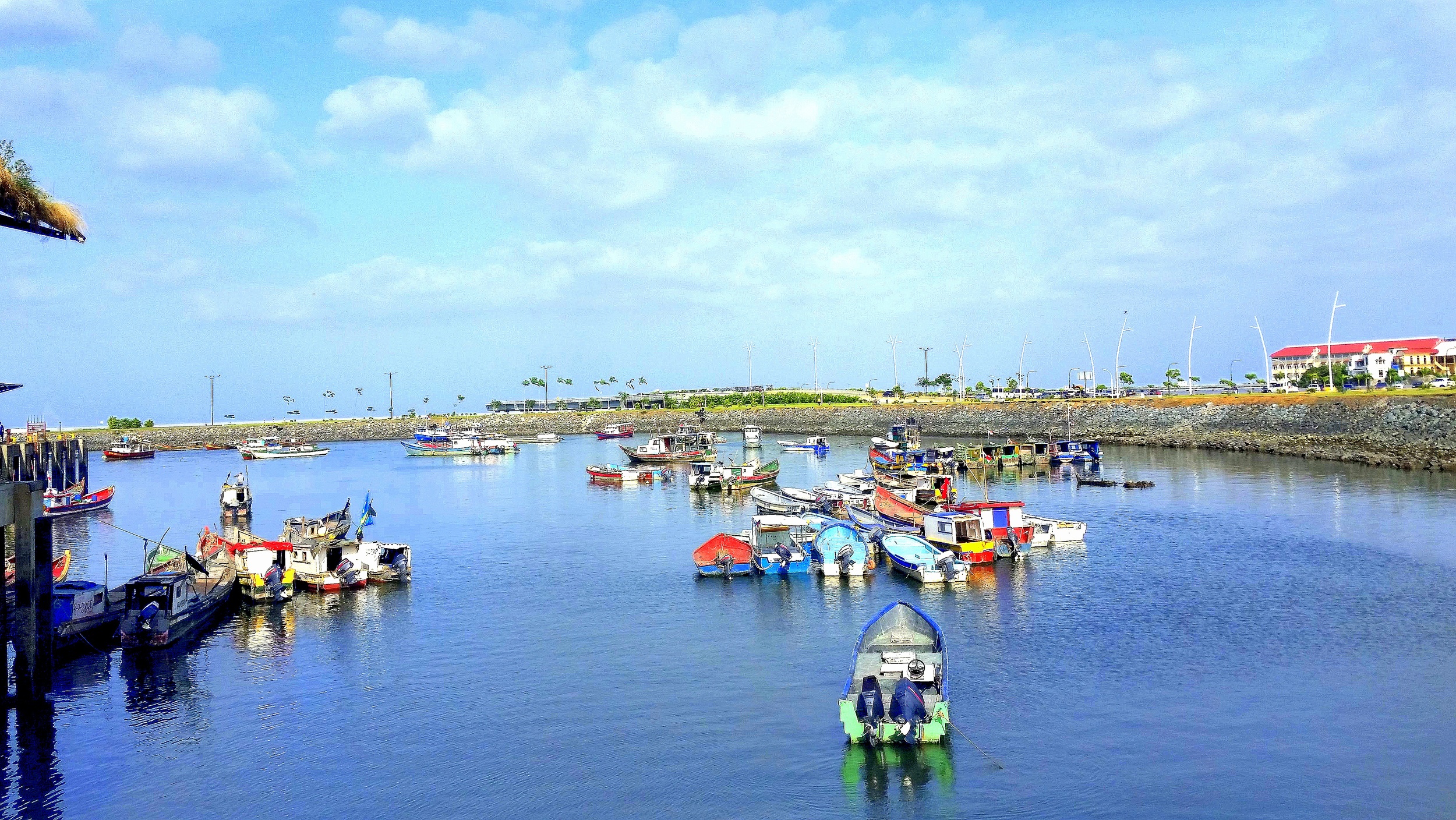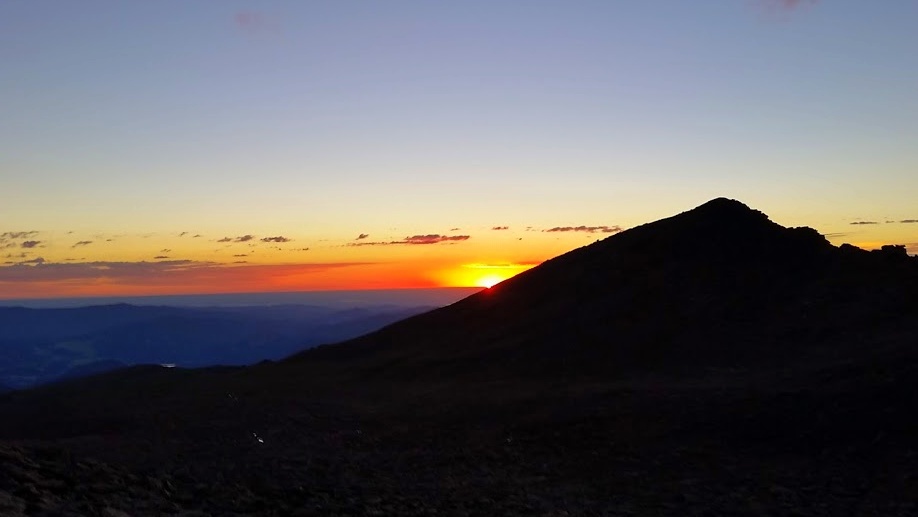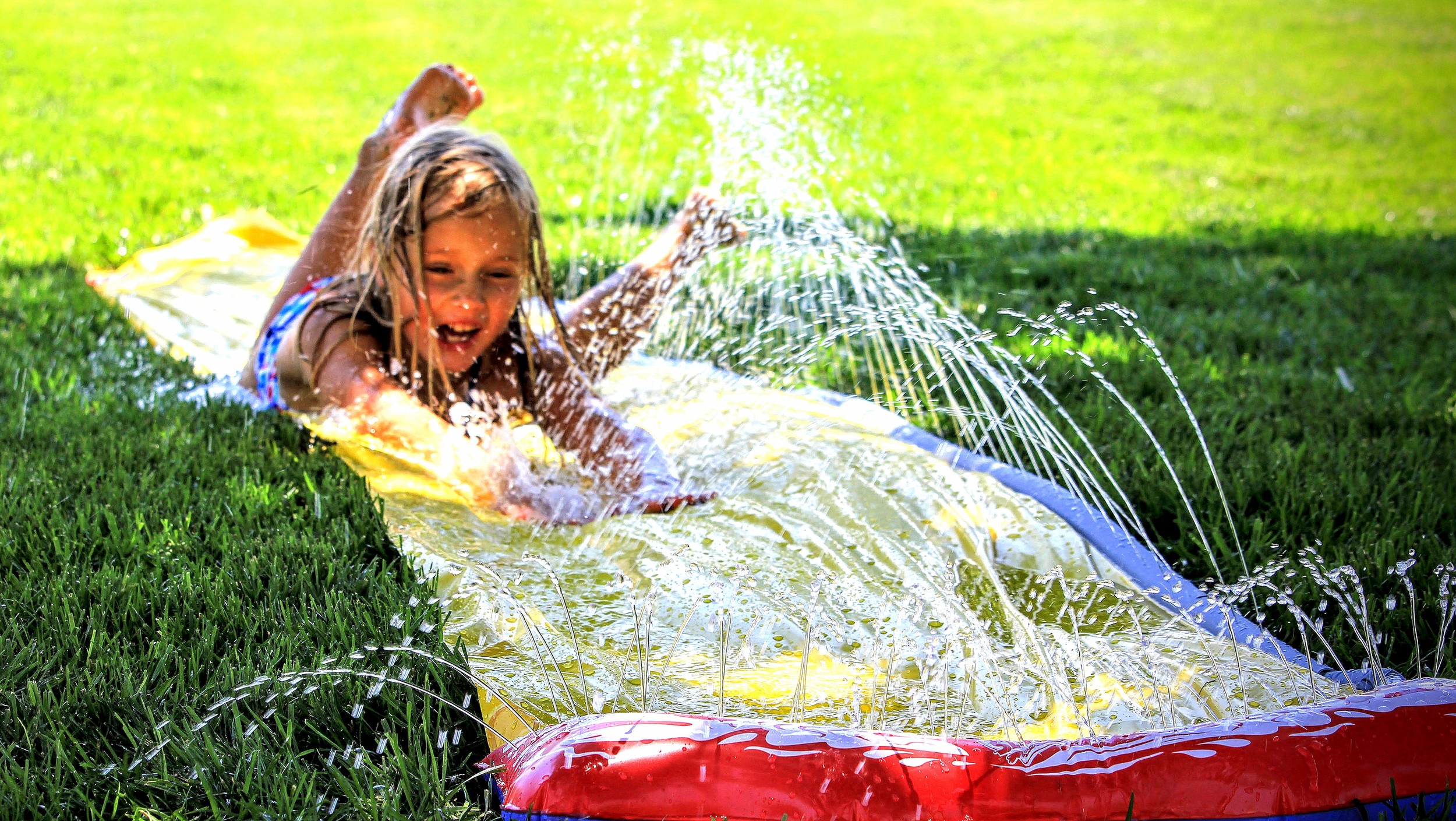Sustainability. It’s a buzzword. It’s a fad. It’s a culture shift.
But really, what is sustainability in terms of how we grow our food in the world? As a dietitian, I have had the pleasure of meeting many people who care deeply about this topic. People who buy local or organic or avoid certain products because of sustainability.
I myself have pondered how I can lead a more sustainable lifestyle. From which waters was the tuna we ate fished? Who made the clothes I’m wearing? What is the impact of the shampoo I wash down the drain?

Fishing boats outside the Fish Market in Panama City
There are lots of tough questions, but I’ve found that it’s really hard to find the true answers. I wish I could say that I’ve got it all figured out and that I’ll tell you what’s up in 500 words or less, but that’s just wishful thinking. Let’s start with the definition of sustainable.
>
“Sustainable:
1. able to be used without being completely used up or destroyed
2. involving methods that do not completely use up or destroy natural resources
3. able to last or continue for a long time”
Whew. How on God’s green earth do we live the way we want to while at the same time preserve our planet? One of the big problems is that we’re not all in agreement about how we should live sustainably. That’s what I’d like to start a conversation about.
But first, let’s begin with the question that must always be answered first: why? Why should we care about living sustainably? More importantly, why should you care about making changes to live sustainably?

Sunrise on the climb up Long’s Peak
Here are a few of my reasons that I care about sustainable living:
Preservation of nature
Ninety-seven percent of scientists agree that global warming is happening and it is caused by human activity. Algal blooms are caused by runnoff from agriculture, wastewater, and even from household soaps (learn more here). Overfishing wreaks havoc in marine communities (learn more here or download your own good fish guide to eat seafood with a clear conscience).
Social Justice
Love God, love people. It’s a pretty simple message that a famous peaceworker (i.e. Jesus) worked hard to spread. So that means it matters that you think about where your chocolate comes from, or who grew your perfectly round canteloupe, or if the American farmer is even getting a fair wage for the crop he produces.
Future Generations
Look at that kiddo in the photo below. That’s my amazing, smart, talented, creative, wonderful niece. I’d really like her (and her fabulous brother and sister) to grow up in a world that doesn’t suffer from longer, more severe droughts. Not only do I want her to have plenty to eat, but I want to make sure that we have a plan about how we’re going to feed the rest of the nine billion people that will soon inhabit the earth (hint: starvation is still a real possibility in many parts of the world).

My super-awesome, fun, creative, talented niece enjoying a little summer slip-n-slide. She’s going places.
So there is your thought to ponder. What does sustainability mean to you? And — take a moment to think about this — why do you care?
With love, from Peas and Hoppiness.
6 thoughts on “The Quest for Sustainability”
Great post! I’ve been thinking about these issues more and more as I get ready to go get a "real job" and make a "grown up" salary. How much do I really need? What does "enough" mean? How do I avoid getting sucked into a consumer culture that tells me I should buy a giant house so I can fill it with a bunch of stuff? A microcosm of this is my thoughts about the consumer culture around electronics. These devices are made from rare, and often toxic, materials, yet we haven’t figured out a great way of harvesting these materials from the (literal) tons of electronics thrown away each year as people go out to buy the latest, greatest smartphone model. Often, they end up in landfills that create huge environmental hazards that can be devastating for people’s health. Hopefully, we can fund some great research into how to re-use these materials, but for now my strategy is to avoid upgrading my phone or other electronic devices as long as possible and then donate them to great cause, like senior adults or domestic violence shelters that convert cell phones for emergency use. One man’s trash is another man’s treasure, as they say.
Thanks, Monica! You bring up excellent points, as well. Great tip about donating phones to shelters! I’ll have to keep that in mind the next time I upgrade.
Wow! A very thought provoking blog. You have inspired me to actually enroll in the free course on Sustainability offered on Coursera, rather than just think about it. It’s titled "Introduction to Sustainability" from the University of Illinois at Urbana-Champaigne and appears to cover many of the topics you highlighted here. Here’s the link https://www.coursera.org/learn/sustainability
I appreciated the references you shared.
Thank you for the link! I’ll have to take a look at it this weekend. In between all of my podcasts. 😉
It seems to me sustainability is more about preservation of the human species, not so much the Earth. In the 4.5 billion year history of the planet there have been plenty of climactic events and massive extinctions. The planet itself weathers the storm just fine, it’s the 99.9 percent of species that ever existed that have gone extinct who have the trouble. Are we just another one of those species that is destined to die out one day, and we are just speeding up the inevitable? Is it possible to live "sustainably" with modern technology and the population size we have/will have? Without really tough regulations worldwide on production, farming, energy production, etc. is it possible get the cooperation needed? Would it be an infringement on people’s rights to do so? Should an individual feel morally obligated to live as sustainably as they can?
Obviously I have more questions than answers (it’s like being in a Panamanian museum…) but it’s interesting to think and learn about!
First of all, I laughed out loud at the Panamanian museum content. Is that an American reading the Spanish?
Secondly, I think we might listen to the same podcasts. It puts a different light on preserving the planet — you’re right, we’re actually attempting to preserve ourselves.
And these are good questions. I’m an optimist, so I’ll probably try to dedicate my life to (attempting to) answer some of these questions. It may very well be an uphill battle, but what’s the fun in not trying?